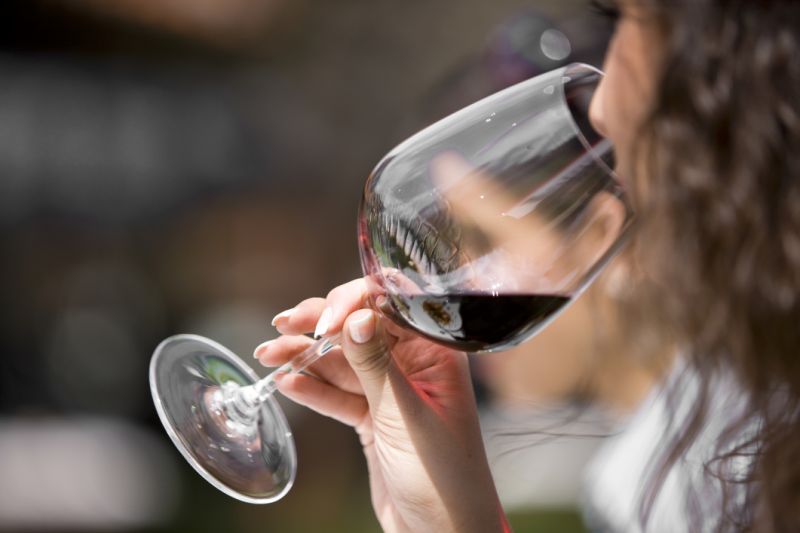The idea of whether it’s safe to drink even a little alcohol during pregnancy has been hotly debated for years. Some people argue that a teeny glass of wine here and there is harmless, while others say it should be avoided at all cost. Now, there’s new research to support the notion that it’s really better to steer clear of any alcohol during pregnancy.
A study published in the journal Frontiers in Behavioral Neuroscience found that any amount of alcohol exposure during pregnancy can cause anxiety in a child that lasts until adulthood. For their research, which was conducted on rats, scientists exposed pregnant rats to ethyl alcohol vapor for six hours during their 12th day of gestation. Then, when their babies were born, they were given a series of anxiety tests. The researchers discovered that male rats born to moms who were exposed to alcohol were more likely to have anxiety in their teens. However, when they became adults, their anxiety was reduced. Female rats were largely unaffected by this.
Again, the study was conducted on rats, not humans, but Michael Cackovic, MD, an ob/gyn at the Ohio State University Wexner Medical Center, tells Yahoo Lifestyle that it’s possible to draw some comparisons. “Animal studies are the best we have because we can’t do randomized controlled trials on human pregnant women,” he points out. “Ultimately, the rat model is pretty good as far as evidence.”
Women’s health expert Jennifer Wider, MD, agrees. “This study and several others like it, are highlighting the fact that environmental effects on fetal development are important with respect to emotional and behavioral outcomes, not just physical outcomes,” she tells Yahoo Lifestyle.
But why did these rats develop anxiety in childhood that went away in adulthood? Study co-author Marvin Diaz, PhD, an assistant professor of psychology at Binghamton University, tells Yahoo Lifestyle that the developing brain might be vulnerable in different ways than the adult brain since the brain is actively growing and changing from the time of being in utero through adulthood. “How alcohol exposure during pregnancy changes this neurodevelopmental trajectory is not clear,” he says. “However, we hypothesize that it is a complex process involved in many alterations in brain structures associated with anxiety.”
That’s why Cackovic and most other doctors advise that their patients avoid alcohol during pregnancy. “The safe threshold of alcohol has never been determined,” he says. “It really is better to be safe than sorry.”
However, if a pregnant woman had a drink before she realized she was pregnant “it’s unlikely there would be significant consequences for the baby,” G. Thomas Ruiz, MD, an ob/gyn at Orange Coast Memorial Medical Center in Fountain Valley, Calif., tells Yahoo Lifestyle. “The 12th day of gestation may be the most sensitive day but in real life or a clinical setting, most of us have not been able to demonstrate that.”
So, if you had a few drinks before you realized you were pregnant, don’t panic — just refrain from drinking alcohol again until after your baby is born.